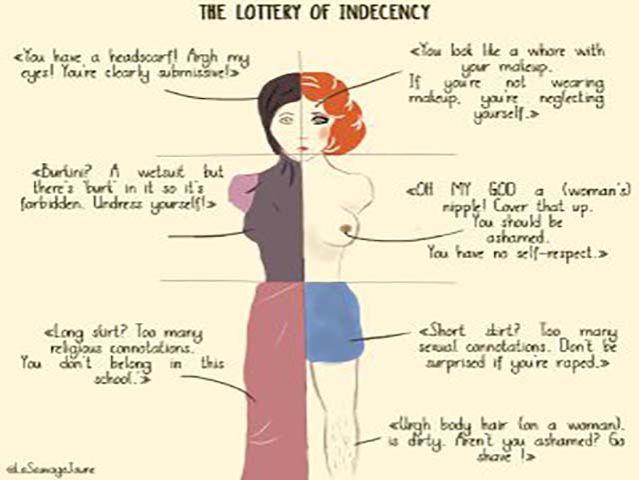CRCPD’s public lecture by Prof. John Paul Lederach – ‘Mobilizing the moral imagination’
Date:30 November 2016Author:Religion Factor
Tomorrow, 1st of December, Professor John Paul Lederach will, in a lecture organised by The Centre of Religion and Conflict in the Public Domain, talk about ‘Mobilizing the moral imagination: Religion in the landscape of fragmentation’. Join us for the lecture and the discussion with great panel of expert respondents: dr. Michelle Parlevliet, specialist in Conflict Resolution and Governance at UVA, Fulco van Deventer, director at the Human Security Collective in the Hague and Simone Filippini, previous CEO and current advisor at Cordaid.
Varieties of Religious Engagement with Climate Change
Date:27 September 2016Author:Religion Factor
Next week, the Centre for Religion, Conflict and the Public Domain, together with Studium Generale Groningen, will host Professor Mike Hulmefrom King’s College London, speaking on Religion’s Role in Climate Change. In today’s post, Professor Hulme provides a taste of some of the issues and themes he will address in greater detail as part of his talk on Wednesday 5 October.
The scandal of women’s bodies in secular Europe
Date:25 August 2016Author:Religion Factor
On Tuesday this week, images of a woman on a beach in Nice being forced by armed police to remove portions of her swimwear began circulating on the internet. The so-called ‘burkini ban’ has sparked outrage and controversy, not least because it is yet another variation of an age-old problem – the control over women’s bodies in public. In today’s post, Kim Knibbe vents her frustrations and reflects on the complex array of factors that contribute to women’s bodies continuing to be objects for the exercise of power.
The secular dead body: feeling awkward about organ donorship
Date:17 July 2016Author:Religion Factor
Organ donorship is a sensitive and at times controversial topic in numerous political contexts. In today’s post, Ton Groeneweg picks up recent failed efforts to introduce Active Donor Registration in The Netherlands to explore the relationship between these debates and evolving dynamics around religion and secularism.
Religious identity and the Refugee Crisis
Date:20 June 2016Author:Religion Factor
Today, 20 June, is World Refugee Day. The UNHCR released its annual Global Trends Report. For the first time in the organisation’s history, global displacement has crossed the 60 million threshold, with a total of 65.3 million people displaced in 2015. That’s 24 people every minute, or 1 in every 113 people.
The Problem is Religion – but not in the way we think
Date:23 March 2016Author:Religion Factor
The terror attacks in Brussels on Tuesday have once again raised questions about the relationship between religion and violence. In today’s post, Erin Wilsonreflects on these issues, exploring key arguments made by Prof William Cavanaugh during his recent lecture in Groningen and book The Myth of Religious Violence.
West, East, and Bureaucratic Torture
Date:18 February 2016Author:Religion Factor
Next Tuesday 23.2.2016, at 11:00-13:00 Prof. Smadar Lavie will give a lecture in Groningen as part of a tour promoting her book “Wrapped in the Flag of Israel” – Mizrahi Single Mothers and Bureaucratic Torture. The lecture will take place in the Zittingszaal, Faculty of Theology and Religious Studies, Oude Boteringestraat 38, Groningen. In today’s post, Ronit Nikolsky provides a brief overview of the content of Prof. Lavie’s book and the questions and issues she will explore further during this lecture.
Inviting our future: liberal de-culturalization and the Paris attacks – Part two
Date:16 February 2016Author:Religion Factor
In today’s post Ton Groeneweg continues his analysis of liberal de-culturalization as a deeper trend exposed by the responses to the attacks in Paris. In this second part of his blog, he focuses on how this process of de-culturalization has sincere consequences for our existence in liberal societies, and how the experienced threats to our liberal existence might offer some opportunities as well.
Inviting our future: liberal de-culturalization and the Paris attacks – Part One
Date:11 February 2016Author:Religion Factor
After a brief hiatus, today we continue our series of reflections on the broader meaning and consequences of events such as the attacks in Paris in November late last year. In today’s post, which is the first of a two-part blog, Ton Groeneweg reflects on the structures that create and sustain the image of superiority of liberal values and positions, supposedly under threat by the attacks in Paris. This image appears to be caught in a self-blinding mechanism that, in refusing to see its own specific cultural biases, threatens to further alienate and exclude those who do not conform to its implicit norms. In the second part of the blog, he will also briefly respond to the earlier contributions of Erin Wilson and Joram Tarusarira to this series.
Continuing reflections after Paris, Beirut and Iraq attacks
Date:17 December 2015Author:Joram Tarusarira
Today’s post continues our series of reflections on the attacks in Paris, Beirut and Iraq. Joram Tarusarira responds to Erin Wilson’s call to accept ambiguities, posing a few problems and questions with this approach






